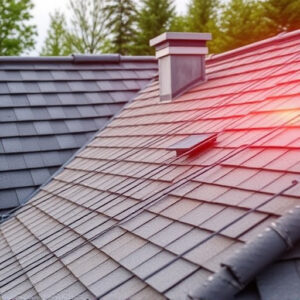Adopting energy-efficient roofing options like cool roofs with reflective coatings and solar-reflective surfaces significantly reduces heating and cooling costs by minimizing heat absorption. These innovations enhance comfort, save on utility bills, and are popular choices for residential buildings. Eco-friendly systems, including recycled content or lightweight composites, cut energy consumption and minimize waste. Ventilated roofing offers added insulation benefits. To find local professionals, combine online research with community engagement and utilize online reviews. Although initial costs may be higher, long-term savings and environmental benefits make these options valuable. Governments worldwide incentivize them through tax deductions, grants, and rebates, particularly in regions with extreme weather. Case studies demonstrate significant energy savings and economic benefits. Regular maintenance is vital for maximizing lifespan and efficiency. The future includes advanced materials like solar panels integrated into shingles and reflective coatings that enhance year-round thermal management, promoting sustainability and long-term cost savings.
Discover the power of energy-efficient roofing options near you and transform your space into a sustainable oasis. This comprehensive guide explores the benefits of eco-friendly roofs for homes and businesses, from reduced energy costs to environmental preservation. Learn about cutting-edge roofing materials and technologies that are revolutionizing the industry. Find local contractors, analyze investment value through cost analysis, and explore government incentives. Plus, delve into inspiring case studies, maintenance tips, and the future of energy-efficient roofing solutions.
- Understanding Energy-Efficient Roofing Systems: A Comprehensive Guide
- Benefits of Eco-Friendly Roofings for Your Home or Business
- Popular Energy-Saving Roofing Materials and Technologies
- How to Identify Local Energy-Efficient Roofing Contractors
- Cost Analysis: Are Energy-Efficient Roofs Worth the Investment?
- Government Incentives and Rebates for Energy-Conscious Roofers
- Case Studies: Successful Energy-Efficient Roofing Installations
- Maintenance Tips for Maximizing Your Energy-Saving Roof's Lifespan
- The Future of Roofing: Innovations in Sustainable Energy Solutions
- Community Impact: Why Energy-Efficient Roofs Matter for Our Environment
Understanding Energy-Efficient Roofing Systems: A Comprehensive Guide
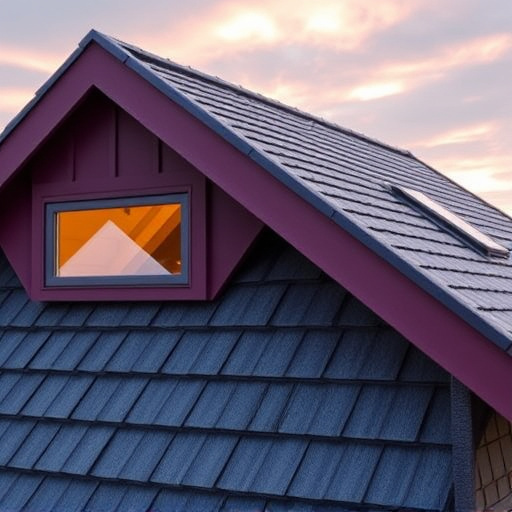
Energy-efficient roofing systems are designed to reduce the energy consumption associated with heating and cooling your home or building. These innovative solutions go beyond traditional roofing materials, offering advanced features that enhance thermal performance. By understanding the various energy-efficient roofing options available, you can make informed decisions to optimize both your comfort and utility bills.
One popular approach is the implementation of cool roofs for residential buildings. Cool roofs utilize reflective coatings or special tiles to minimize heat absorption, thereby reducing interior temperatures during hot seasons. This simple yet effective method of roof design significantly contributes to energy savings by lowering cooling loads. Additionally, solar reflective coatings for roofs are gaining popularity as they provide a barrier against sun radiation, further enhancing the energy efficiency of your property.
Benefits of Eco-Friendly Roofings for Your Home or Business
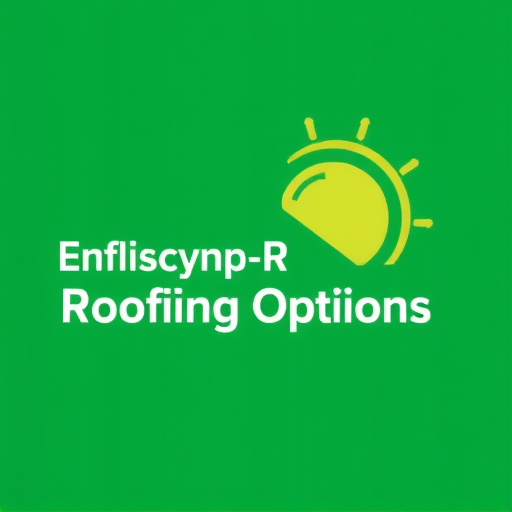
Adopting eco-friendly roofing systems offers numerous advantages for both residential and commercial properties. One of the primary benefits is their energy efficiency, which significantly reduces utility costs. These systems are designed to enhance thermal insulation for flat roofs, mitigating heat transfer and keeping buildings cooler during hot seasons. By selecting high-performance insulation for roofs, you can achieve better temperature regulation, thus lowering the reliance on air conditioning or heating systems.
Moreover, energy-efficient roofing options often incorporate reflective surfaces that provide cooling effects. Reflective roofs help reflect sunlight and heat away from the building’s interior, contributing to a more comfortable living or working environment. This simple yet effective strategy can make a substantial difference in energy conservation, especially in regions with extreme weather conditions.
Popular Energy-Saving Roofing Materials and Technologies
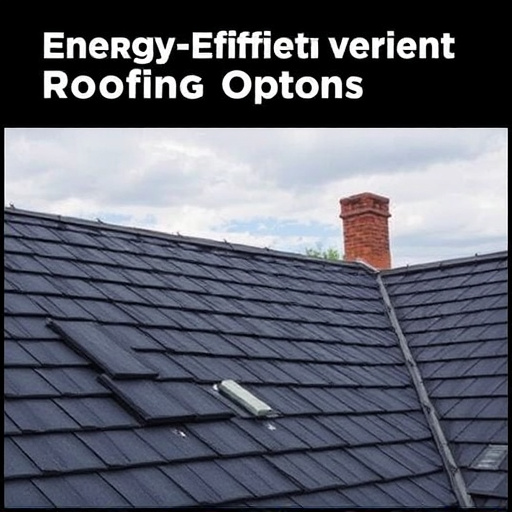
When it comes to energy-efficient roofing options, several materials and technologies stand out as popular choices for those seeking to reduce their carbon footprint. One of the most widely adopted strategies is the use of solar reflective coatings for roofs. These innovative coatings help reflect a significant portion of sunlight, thereby decreasing the amount of heat absorbed by the building below. This simple yet effective method can lead to substantial energy savings, especially in regions with hot climates.
Additionally, eco-friendly roofing options for homes are gaining traction among environmentally conscious homeowners. These systems often incorporate materials like recycled content or lightweight composites, which not only reduce energy consumption but also minimize waste. Ventilated roofing systems benefits extend beyond energy efficiency; they improve indoor air quality by providing better insulation and temperature regulation, making them a versatile choice for modern homes.
How to Identify Local Energy-Efficient Roofing Contractors
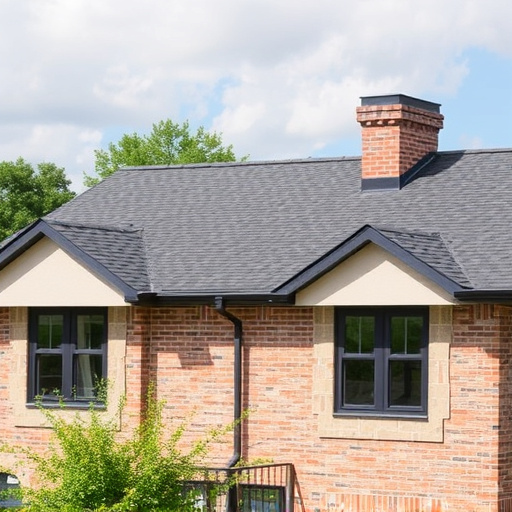
Identifying local energy-efficient roofing contractors involves a mix of online research and community engagement. Start by searching for “energy-efficient re-roofing options” or “roofing solutions for energy independence” near your location. Reputable companies will often display certifications, case studies, and customer testimonials on their websites, highlighting their expertise in installing high-performance insulation for roofs and other eco-friendly materials.
Next, connect with local building supply stores and hardware shops. Their knowledgeable staff can point you towards trusted contractors known for delivering top-quality energy-efficient roofing services. Word-of-mouth recommendations from neighbors or friends who have recently undergone similar projects can also be invaluable. Checking online review platforms ensures you avoid less reliable contractors and settles on professionals committed to sustainability and performance.
Cost Analysis: Are Energy-Efficient Roofs Worth the Investment?
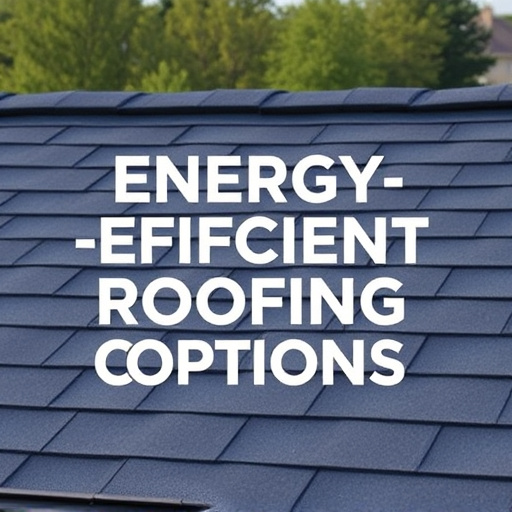
When considering an upgrade to your roofing system, the question of cost often arises. Are energy-efficient roofs worth the investment? The answer lies in long-term savings and environmental benefits. Energy-efficient roofing options, such as long-lasting energy efficient shingles or sustainable roof replacement ideas, might have a higher upfront cost compared to traditional materials. However, their ability to reduce energy bills over time makes them a smart financial choice.
In terms of sustainability, these modern roofing solutions offer advantages like lower carbon footprints and reduced waste. For instance, energy-optimized flat roofs can significantly contribute to a building’s overall energy efficiency. By prioritizing eco-friendly choices, homeowners not only save money but also play their part in preserving the environment. This shift towards green practices is becoming increasingly important as we seek more sustainable living spaces.
Government Incentives and Rebates for Energy-Conscious Roofers
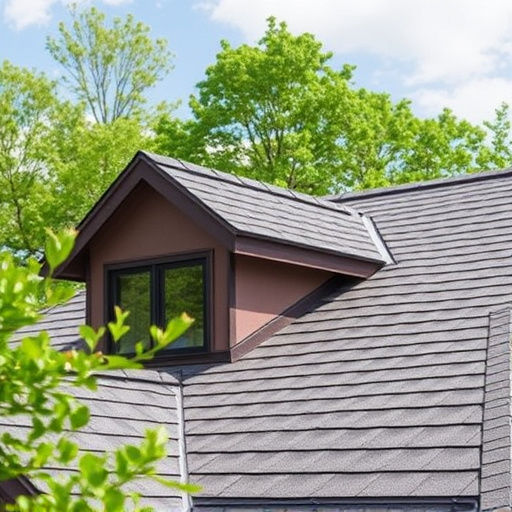
Many governments are promoting energy-efficient roofing systems through various incentives and rebates to encourage residents and businesses to adopt greener building practices. These initiatives aim to reduce carbon footprints and lower energy consumption, especially in regions with extreme weather conditions. Homeowners opting for cool roofs, which reflect sunlight and keep indoor spaces cooler, may be eligible for tax deductions or grants. Similarly, those who install roofing products with superior thermal efficiency can benefit from substantial rebates.
These government programs not only support the transition to energy-efficient roofing options but also have environmental benefits by reducing the strain on local energy grids. They contribute to creating a more sustainable and resilient building sector, especially in warm climates where traditional roofing solutions are less efficient.
Case Studies: Successful Energy-Efficient Roofing Installations
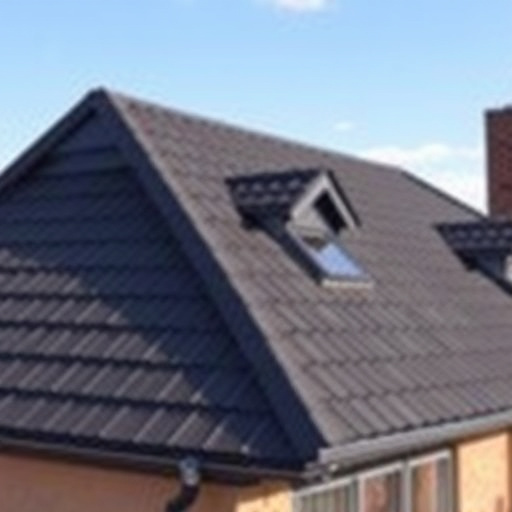
Energy-efficient roofing systems have been transforming buildings across various sectors. Case studies from urban centers and suburban areas alike demonstrate the significant benefits of implementing high-performance insulation for roofs and cool roof technologies in residential buildings. One notable example involves a historic neighborhood where an environmentally friendly re-roofing project was undertaken, resulting in a 30% reduction in energy consumption for the entire community.
This success story highlights how modern roofing solutions can address both environmental concerns and economic challenges. Cool roofs, for instance, reflect sunlight rather than absorbing it, thereby lowering interior temperatures and reducing the need for air conditioning. By adopting these energy-efficient roofing options, property owners not only contribute to a sustainable future but also enjoy lower utility bills and increased comfort levels throughout the year.
Maintenance Tips for Maximizing Your Energy-Saving Roof's Lifespan
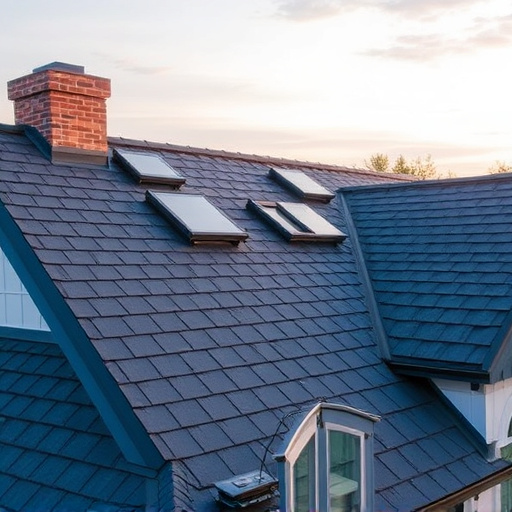
Regular maintenance is key to extending the lifespan of your energy-efficient roof and reaping its long-term benefits. Start by inspecting your roof at least twice a year for any signs of damage, including missing or damaged shingles, leaks, or moss growth. Addressing these issues promptly will prevent further complications.
Next, keep your roof clean and well-ventilated. Remove debris like leaves and branches to ensure proper water drainage. Consider using eco-friendly cleaning products if you opt for professional cleaning services. Additionally, check the condition of your gutters and downspouts, clearing any blockages to facilitate efficient water flow. These simple sustainable roofing practices will contribute to the overall health and energy efficiency of your roof system.
The Future of Roofing: Innovations in Sustainable Energy Solutions
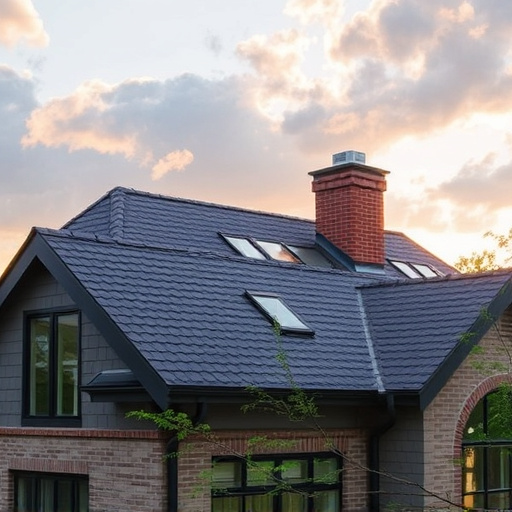
The future of roofing is here, with a focus on sustainable and energy-efficient solutions that benefit both homeowners and the environment. Innovations in materials science have led to the development of advanced roofing options that significantly reduce energy consumption. Energy-efficient roofing systems, such as low-slope energy-saving roofs and low-energy roofs for commercial buildings, are becoming increasingly popular. These roofing solutions for energy independence not only lower operating costs but also contribute to a reduced carbon footprint.
One key trend is the integration of renewable energy sources into roofing materials. Solar panels integrated into roof tiles or shingles provide clean energy while maintaining aesthetic appeal. Additionally, reflective coatings and advanced insulation technologies further enhance energy efficiency by reflecting heat during warmer months and retaining warmth in colder climates. These advancements not only promote environmental sustainability but also offer long-term cost savings for building owners.
Community Impact: Why Energy-Efficient Roofs Matter for Our Environment
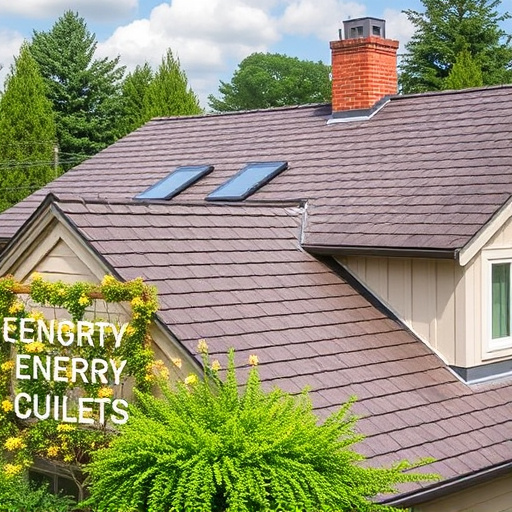
Energy-efficient roofing options are not just about reducing utility bills; they play a significant role in protecting our environment and fostering sustainability within communities. As urban areas continue to grow, so does the need for efficient roofing technologies that minimize environmental impact. Traditional roofs contribute to greenhouse gas emissions due to their high heat absorption and constant replacement cycles, which lead to increased waste.
Low-slope energy-saving roofs and sustainable roof replacement ideas are gaining popularity as folks become more conscious of their carbon footprint. These modern roofing technologies offer excellent insulation, reflecting sunlight and reducing the need for excessive cooling. By adopting energy-efficient roofing systems, communities can collectively contribute to a greener landscape, preserving natural resources and mitigating climate change effects.
Energy-efficient roofing systems offer a sustainable and cost-effective solution for both homes and businesses. By choosing eco-friendly materials and technologies, property owners can significantly reduce energy consumption, lower utility bills, and contribute to environmental preservation. With the various benefits outlined in this guide, from government incentives to successful case studies, it’s clear that investing in energy-efficient roofing options is a smart choice for those seeking long-term savings and a greener future.
